Science Fiction
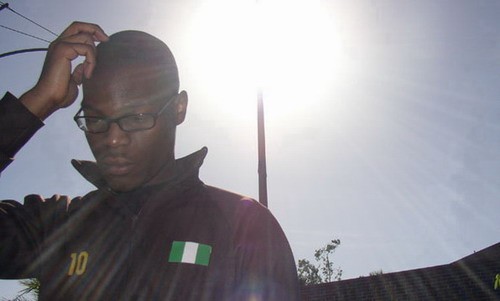
Hip Hop Core: Is there any difference between Science Fiction and Wale Oyejide?
Science Fiction: Well, the most obvious difference is that the music is completely different than what I was doing on the Science Fiction project. "Walls Don't Exist" was more of an instrumental album. "One Day Everything Changed" is more directed for the people. It's easier to listen to. I wanted to make music that the every day person could relate to, and connect with. And there were a few issues that I wanted to speak about.
HHC: You are from Nigeria, the craddle of afro beat, juju… Could you explain briefly these local music?
SF: African music is typically based a lot more on rhythm, and that's something that I wanted to pay special attention to. Words might make someone listen, but drums will make them move. So even if they aren't really interested in what you're saying, they will be compelled by the rhythm to move, and eventually listen.
HHC: I've heard that the Nigerian movie industry is well developed. Are you interested by that and by the other forms of art from Nigeria or Western Africa in general?
SF: I'm interested in film in general. It's definitely something that I would like to get into further down the line. There are definitely many stories to be told, and I'm sure there are a lot of old fables and folklore that people would love if they could see it in the form of movie.
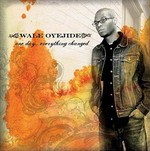 HHC: I read somewhere that you have a rock n roll background. Do you still listen to (and play) grunge music? Sometimes, in your music, one can feel that you have kept this rock n roll approach.
HHC: I read somewhere that you have a rock n roll background. Do you still listen to (and play) grunge music? Sometimes, in your music, one can feel that you have kept this rock n roll approach.
SF: Yeah, I first got into music, playing guitar and drums in a Nirvana cover band. I don't think I have that sound anymore necessarily, but you can still hear the influence. For instance, in rock music, it's not always about having the best voice. As long as you put feeling and intensity into your music, people will dig it. Some people have complained about the vocals on "One day" and I agree, they're far from perfect. But I feel like anyone who is spending too much time analyzing the vocals is missing the picture. If you want a pristine voice, go listen to Marvin Gaye (who I love). If you want some rocked-out broken-jazz, come to me. Too many people are afraid to experiment and try something new.
HHC: Tell us more about your musical influences?
SF: I'm a pretty open minded person when it comes to music. I feel like if you aren't, you'll never grow as an artist. So I listen to a lot of jazz, soul/funk from the 70s, some rock. Whatever is good, I'll at least give a chance. But I can be pretty critical too. The new album obviously has a heavy Fela Kuti/Afro-beat influence. I'm also a big fan of Sly Stone.
HHC: Do you consider yourself as a producer, a musician or both?
SF: I consider myself an individual who was given the gift of a good ear. I'm not a classically trained musician, but I think I have a pretty good idea of what I'm doing. As far as being a producer? Well, I've made some pretty dope beats so I guess I qualify as one.
HHC: In hip-hop, the production is often centred on drums. Drums are important but you seem to primarily work on the melodies …Is it what makes the difference between beats and music?
SF: I think they're equally important. You can't have one without the other. Even songs that are really minimalist need SOME kind of melody. For example, look at "Grinding" by the clipse & the Neptunes. It's just them rapping over some drums…but they still sang the chorus.
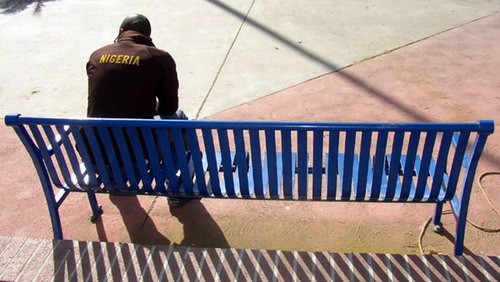
HHC: Are you obsessed by the quest of the ideal sample? Are you a big crate digger?
SF: Honestly, I don't have much of an interest in digging. I definitely sample, but I'm more interested in playing live on top of some samples, instead of just jacking loops. But there's an exception to every rule.
HHC: If you had to describe your music and maybe convince someone who doesn't know you to listen your albums what would you say?
SF: Um, I'd say it's raw. A little bit of soul, a little funk, and sometimes from an African perspective. But basically, its raw, honest music.
HHC: Your music is often about love and peace, are you an optimistic person?
SF: Sure. But for the most part, I'm realistic. Obviously we live in a world that has a lot of beauty and sadness. I just speak on whatever is around me, and whatever I feel.
HHC: Do you prefer your work on instrumental tracks or on those with vocals?
SF: I'm not that interested in making strictly instrumental stuff anymore.
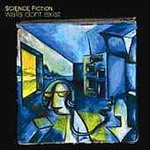 HHC: There is something recurrent in your titles: "Walls Don't Exist", "Broken Jazz"… You seem to fear being put in a box (by journalists or people in general). Am I right?
HHC: There is something recurrent in your titles: "Walls Don't Exist", "Broken Jazz"… You seem to fear being put in a box (by journalists or people in general). Am I right?
SF: Well, no artist wants to feel like they're lumped together with everyone else. Even if it's true. My situation is unique, because so far, with the albums I've put out, there haven't been too many other records that sound like them. So I feel like I'm on my own page. Not saying that I'm better than anyone else necessarily, but I'm definitely doing my own thing.
HHC: Who designed your different covers and especially the magnificent cover of "Walls Don't Exist"?
SF: "Walls Don't Exist" was done by Paul Walsh, and "One Day Everything Changed" was down by SWASH (www.solitaire007.com).
HHC: Could you tell us a few words about the "The Sounds of Science" project you've done with Lil' Sci from Scienz of Life?
SF: Oh, that was a mixtape we did to promote "Walls…" It was a lot of fun. Sci is a really dope emcee, and his new album "the John Robinson Project" (produced by DOOM) is going to surprise a lot of people. Check for it early next year.
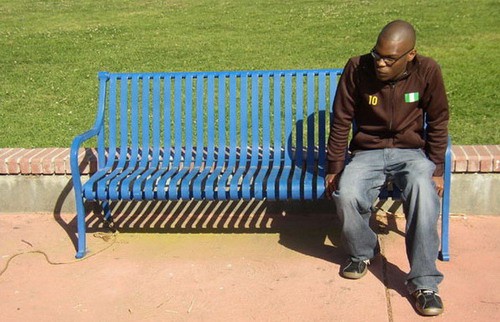
HHC: I suppose that with the current political situation, in the United States, there's a strange feeling towards Middle Eastern people. You lived in the United Arab Emirates for years, what's your opinion concerning the situation and the reaction of American citizens following 9/11?
SF: There is bias in every culture, and you're always going to come across people who are ignorant, and want to judge unfairly. But I think for the most part, Americans are aware that it was a select group of people who committed those terrible acts on 9/11, and not the whole Arab world. Middle Eastern people are just people like you and I, and shouldn't be treated any differently.
HHC: Do you plan to go to Europe for shows or tourism maybe?
SF: Yeah, for sure. One thing I love about Europe is how much they support good music, and how passionate they are about it. Sometimes it takes people in the U.S a while to catch on to good music.
HHC: What does your playlist look like right now?
SF: Hm…I'm not really listening to too much new stuff. The new Antibalas album, the Roots Live on Giles Peterson's Worldwide, the 24 Carat Black, and Sly Stone's "Small Talk" album.
HHC: Do you plan to collaborate further with MF Doom, Jay Dee or some of the artists you've already collaborated with?
SF: Definitely. But I don't like to force things. The best collaborations happen naturally and spontaneously. So if I think DOOM, Dilla, or whoever will fit well on a particular song, we'll make it happen.
HHC: What are you current projects?
SF: Right now, I'm just getting ready to get on the road and tour. So hopefully I'll be in a city near you soon.
HHC: Any last word?
SF: I just want to thank everyone for all the support so far. Please continue to do so. It's very much needed, and appreciated. Peace.
Interview by Dext
September 2004